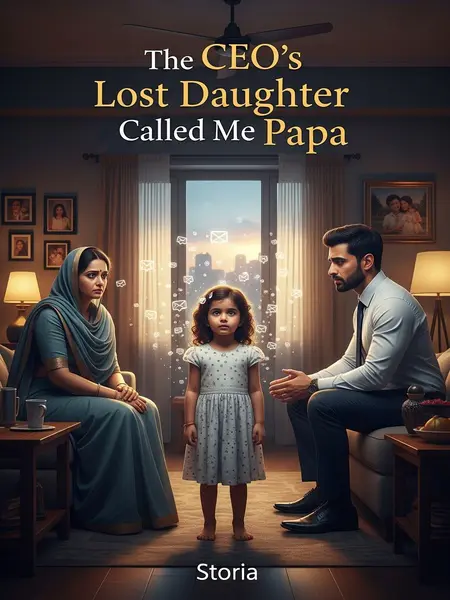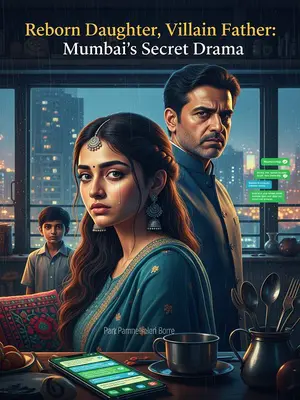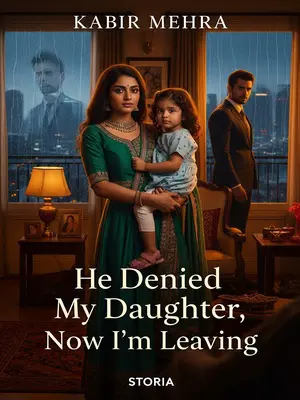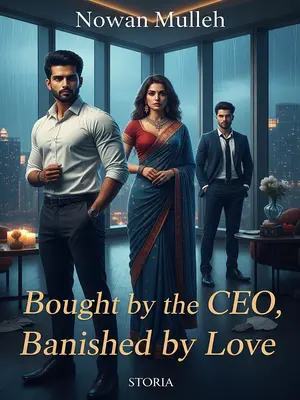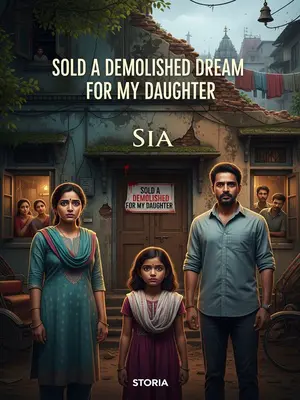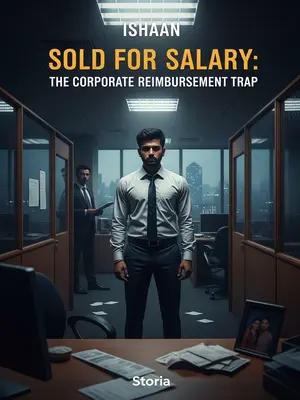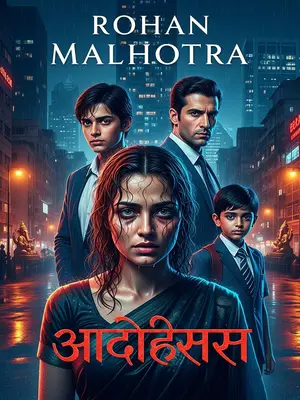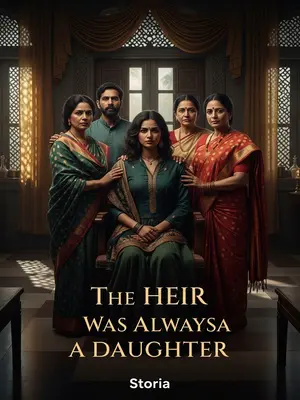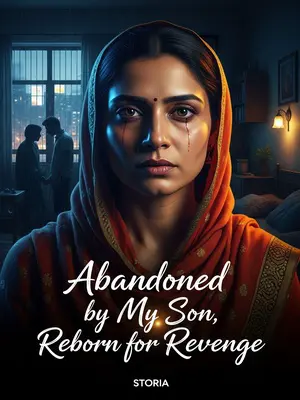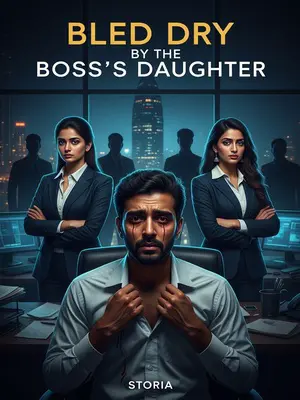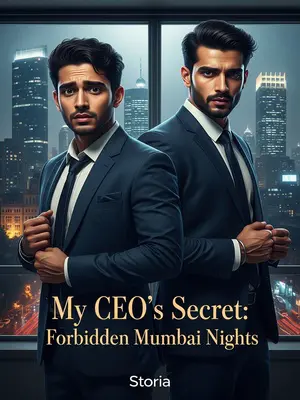Chapter 1: Words Only I Can See
I was four the first time I saw words floating in the air—like WhatsApp messages, but only I could read them.
[Our Meera’s mum is working so hard, but she doesn’t even know she’s sick. My heart is breaking, yaar.]
[If only Priya and Arjun would talk, na, all this drama could end. Why so much ego, boss?]
[Poor daughter, lost her mother at six, and the father doesn’t even know he has a child. Bas beta, abhi mummy aa jayegi.]
[The saddest is our little Meera, clearly has a rich dad, but is sent to the orphanage...]
Mum is going to die?
I stared blankly at my gentle and beautiful mother. No, this can’t happen.
They don’t talk, but I can.
On a warm afternoon, I waited outside an office building, spotted a man in a suit, and hugged his leg tightly.
“Papa, give me money. I want to save Mummy.”
---
My name is Meera Jain, but everyone calls me Meera.
People always say there’s something special about a name—Mum used to tell me, “Beta, your name means ‘prosperous’, always remember that.” I’d nod, not fully understanding, but loving the way she’d say it, her voice softer than lullabies when the ceiling fan whirred at night.
Ever since I could remember, I knew I was different from other kids.
It wasn’t just that I asked for extra mango pickle with my paratha, or that I could mimic all of Sridevi’s filmi dialogues. There were always long strings of words floating in front of my eyes. I thought everyone saw them, until I pointed at the air one day and asked Mum, and she just looked at me, confused.
She asked, “Beta, what are you talking about?”
Her voice was gentle, her head tilting in that familiar way, eyes full of concern. That’s when I realized—only I could see these rolling, crowded comments.
After a while, I got used to it. It was nothing special, like the sound of a distant pressure cooker or the ice-cream wala’s bell on Sunday.
Sometimes I’d giggle at them, sometimes ignore them, just like you learn to ignore the street dogs barking in the afternoon heat.
But everything changed when I started learning to read.
Those rolling symbols started to make sense, bit by bit.
I was smarter than the other kids—Mum noticed quickly, so she taught me to read and do maths before anyone else. We’d sit together on the verandah, drawing letters with chalk on the tiles, or sometimes with her finger in spilled tea. She’d smile whenever I got something right. By the time I was four, I finally understood those strange symbols. They were [barrage comments]—like the scrolling comments people post on YouTube Shorts or Insta reels.
[Our Meera’s mum is working so hard, but she doesn’t even know she’s sick. My heart is breaking, yaar.]
[If only Priya and Arjun would talk, na, all this drama could end. Why so much ego, boss?]
[Poor daughter, lost her mother at six, and the father doesn’t even know he has a child. Bas beta, abhi mummy aa jayegi.]
[The saddest is our little Meera, clearly has a rich dad, but is sent to the orphanage...]
Female lead—like the main characters in Mum’s Star Plus serials?
I didn’t really get it, so I scratched my head with my chubby hand. The smell of coconut oil from the morning still lingered, warm and safe.
That day, Mum came home from work looking troubled.
Her dupatta was slipping off her shoulder, lipstick faded, and I could see a tiredness in her eyes that made me want to hug her tight. Outside, autos honked and the kulfi-wala’s bell rang, but inside it was just us. Her voice sounded extra weary.
“Meera, in a couple of days Mummy has to go on a business trip to another city. Will you stay at Aunty Shalini’s house? She’ll take you to playschool.”
The barrage comments popped up again.
[Arrey, Priya, go to the hospital and get checked, yaar. Early stage can be cured!]
[This business trip is the last chance for Priya and Arjun to meet. Miss ho gaya toh, phir kya fayda?]
[Stop worrying about that naukri, Priya! Go for treatment, please.]
[Little Meera is so good, feels bad for her mum, and doesn’t even know her real dad is so rich. Kya scene hai yaar?]
[Sob sob, when Priya is finally diagnosed with cancer, it’s already too late. She gives up treatment to save money for her daughter. Heartbreaking, na...]
[……]
I froze.
Priya, that’s my mum’s name.
Suddenly, my stomach dropped, like when you miss a step on the stairs. Is my mum the one who’s sick?
I looked at Mum again. She was still gentle and beautiful, but she did look thinner lately, and she’d been eating less.
Her cheekbones looked sharper, and the way she moved was slower, as if she was holding herself together just for me. Is this what it means to be sick? I remembered how Amma next door always brought haldi milk for sick people. Should I make some for Mum? But I didn’t know how.
Mum’s voice came again: “Beta, why are you zoning out again? Mummy is talking to you. Will you stay at Aunty Shalini’s house?”
Her words were soft, but there was a little tremble in them, the kind you hear when someone is tired but doesn’t want to show it.
“No.” I refused without thinking.
